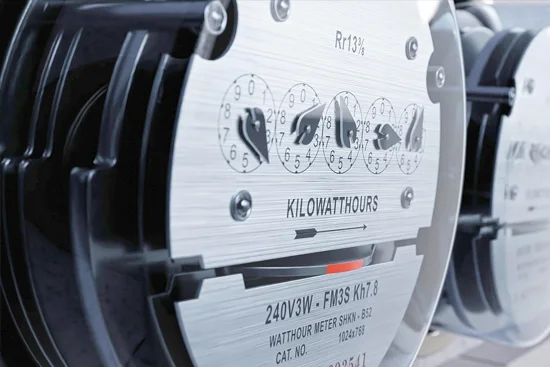
In a world that is increasingly facing the challenges of climate change and resource scarcity, the efficient use of energy is crucial. ISO 50001 is an international standard that helps companies and organisations to improve their energy efficiency, cut costs and reduce their environmental footprint.
This standard specifies requirements for an effective energy management system (EnMS) and provides a framework for continuous improvement in the energy sector. The ISO 50001 standard plays an important role in the global drive to reduce energy consumption.
WHAT IS ISO 50001?
ISO 50001 is a standard developed by the International Organisation for Standardisation (ISO), which was first published in 2011. Its aim is to help organisations of all sizes and industries to establish a systematic and comprehensive energy management system in order to optimise their energy consumption and continuously improve their energy performance.
WHY IS ISO 50001 IMPORTANT?
ISO 50001 plays an important role in the global drive to reduce energy consumption and minimise environmental impact. By implementing energy-efficient practices, companies and organisations can not only reduce costs, but also improve their competitiveness while making a positive contribution to climate protection.
THE BENEFITS OF ISO 50001 CERTIFICATION
ISO 50001 certification brings numerous benefits, including:
- Cost savings: By identifying and implementing measures to improve energy efficiency, companies can significantly reduce their energy costs.
- Improved performance: A structured energy management system enables organisations to monitor, measure and continuously improve their energy performance.
- Compliance: Compliance with legal regulations and environmental standards is made easier by implementing an energy management system.
- Image and reputation: ISO 50001 certification signals an organisation's commitment to sustainability and environmental protection to customers, suppliers and other stakeholders.
- Competitive advantage: Companies that are ISO 50001-certified can differentiate themselves in an increasingly competitive market and open up new business opportunities.
HOW IS ISO 50001 IMPLEMENTED?
The implementation of an energy management system in accordance with ISO 50001 requires a systematic approach, which may include the following steps:
- Energy review: Analysis of current energy consumption and identification of potential for improvement.
- Definition of targets and measures: Development of targets to improve energy efficiency as well as measures to achieve these targets.
- Documentation and implementation: Creation of documents, procedural instructions and training to ensure that all employees understand and can implement the requirements of the EnMS.
- Monitoring and measurement: Continuous monitoring of energy consumption and performance to track progress and identify deviations.
- Internal audits and management review: Regular review and evaluation of the EnMS through internal audits and management reviews to ensure that it is working effectively and is continuously improving.
ISO 50001 provides companies and organisations with a clear framework for improving their energy efficiency and reducing their ecological footprint. By implementing an energy management system in accordance with ISO 50001, they can not only reduce costs and increase their competitiveness, but also make an important contribution to global climate protection. At a time when sustainability is becoming increasingly important, ISO 50001 is an indispensable tool for a sustainable future.
PeRoBa Quality Management from Munich - Individual quality management and ISO 50001 consulting
Consulting, implementation, audits and QM tools from a single source
PeRoBa GmbH Munich is a service provider with many years of experience in quality management, especially in automotive and
mechanical engineering. We help with all important standards (ISO 9001, ISO 50001, VDA6.3, IATF 16949,...) on the way to certification or
re-certification. We also work closely with universities and research institutes. Managing Director Dr. Scherb teaches as a lecturer,
for example, at the Hamburger Fern-Hochschule, the FOM in Munich and is also a speaker at the TÜV-Süd Akademie, the Bildungswerk der
Bayerischen Wirtschaft and many other institutions.
We look forward to hearing from you. The best way to reach us is by phone at the number
+49 8106 / 230 89 92
(more
contact options)
Quality management -
ISO 9001, ISO 45001, VDA 6.3 and IATF 16949 Consulting and audits - www.peroba.org